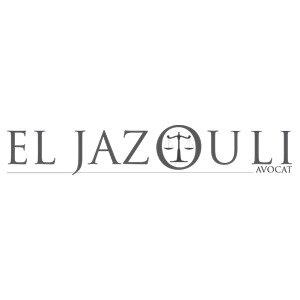Best Inheritance Law Lawyers in Marrakesh
Share your needs with us, get contacted by law firms.
Free. Takes 2 min.
List of the best lawyers in Marrakesh, Morocco
1. About Inheritance Law in Marrakesh, Morocco
Inheritance law in Marrakesh is part of Morocco’s civil law system and is shaped by the Moroccan Family Code, known as the Moudawana, which has roots in Sharia principles. Local probate and succession matters follow both the Family Code and general civil procedure rules. In Marrakesh, as in other cities, heirs, spouses and the estate must navigate formal steps with notaries, courts and, when needed, the Bar of Marrakech avocats.
Key features include fixed heirship rules, constraints on freely distributing an estate, and specific shares for spouses, children and certain relatives. In practice, many Marrakesh cases involve real estate in the city or nearby areas, wealth divided across multiple heirs, and potential disputes among family members. An experienced avocat (lawyer) helps translate religious principles into present-day legal procedures and local court practices.
In Morocco, inheritance is governed by the Moudawana, the family code, with emphasis on forced heirship and defined shares for spouses and children. See official justice and human rights resources for the legal framework.
Sources: Ministry of Justice Morocco, OHCHR Morocco.
2. Why You May Need a Lawyer
Inheritance matters in Marrakesh often require concrete legal steps and local knowledge. Below are real-world scenarios where hiring an inheritance lawyer makes a difference.
- A widow in Marrakech seeks her rightful share after her husband dies and the estate includes a riad in the Medina. A lawyer helps interpret the marital share and coordinate with a notaire for asset transfer.
- A Marrakech family disputes a will that disinherited a son. An avocat can assess potential challenges to the will, verify witnesses, and file a claim in the appropriate court or engage in mediation with beneficiaries.
- An heir living abroad inherits property in Marrakech and must arrange transfer of title, tax reporting, and repatriation. A local lawyer coordinates with notaries and foreign heirs to ensure compliance with Moroccan rules.
- A non-Muslim spouse or stepchildren seek recognition of inheritance rights under Moroccan law. A dedicated inheritance attorney clarifies applicable shares and any regional procedural differences in Marrakech courts.
- A complex estate includes real estate in multiple Moroccan cities, requiring consolidating titles and registering with the Moroccan land registry. An avocat guides the notary in consolidating ownership and resolving encumbrances.
- Estate debts need to be settled before distribution to heirs. A lawyer helps identify creditors, prioritise debts, and arrange a legally compliant settlement plan in Marrakech.
3. Local Laws Overview
Code de la Famille (Moudawana)
The Moudawana, or Moroccan Family Code, governs inheritance, marriage, and parental rights. It sets forced shares for spouses and children and defines permissible disposition of property after death. The code was promulgated in 2004 by Dahir and has been subject to targeted amendments to clarify procedures and protect vulnerable heirs. In Marrakech, these rules are applied by local courts and notaries on succession matters.
Recent trends include efforts to streamline procedures in succession and to harmonize practice between urban centers like Marrakesh and rural areas. Avocats in Marrakech frequently work with notaries to implement the code in real estate transfers and liquidation of estates.
Sources: Ministry of Justice Morocco, OHCHR Morocco.
Code de Procédure Civile
The Moroccan Code of Civil Procedure supervises how inheritance disputes are heard and resolved in courts. It covers filing deadlines, evidence standards, and the process for validating wills or resolving intestate succession. In Marrakech, civil procedure rules guide the timing of claims and the sequencing of hearings in provincial and regional courts.
Notaries in Marrakesh also play a crucial role in authenticating wills and managing estate inventories under this code, ensuring documents are properly executed for registration and transfer of property.
Notariat and related succession procedures
Notarial law governs the formalization of wills, inventory, liquidation, and distribution plans. In Marrakesh, notaries work closely with avocats to prepare acts of succession, prohibit fraudulent transfers, and ensure compliance with forced heirship rules. The combination of notarial and court procedures often shapes the timeline for estate settlement.
Recent procedural reforms in Morocco have aimed at modernizing notarial services and reducing delays in probate filings, with Marrakech being a focal point for urban notarial activity.
4. Frequently Asked Questions
What is the Moudawana and how does it affect inheritance in Marrakesh?
The Moudawana is Morocco's Family Code that governs inheritance shares and limits. It ensures specific shares for spouses and children and restricts distributions to non-heirs. In Marrakesh, courts apply these rules during probate proceedings.
How do I start a probate or inheritance case in Marrakech?
Begin by gathering identities, wills, property deeds, and debt records. Contact an avokat in Marrakech to assess the estate, file appropriate petitions, and coordinate with a notary for asset valuation.
When should I hire an inheritance lawyer in Marrakech?
Engage a lawyer when you foresee disputes, need to validate a will, or must navigate multiple heirs and real estate ownership in Marrakech. Early engagement helps avoid delays.
Where can I file a will or coordinate notarial acts in Marrakech?
Wills and notarial acts can be handled at Marrakech notaries and their offices, with court validation where required. Your avocat can direct you to the appropriate notary for your case.
Why is forced heirship important in Moroccan inheritance law?
Forced heirship protects designated relatives and restricts discretionary disinheritance. It ensures certain shares for spouses and children even if the deceased tries to transfer assets otherwise.
Can a foreigner inherit property in Marrakech?
Foreigners may inherit under Moroccan law if the succession is compliant with local rules and residency requirements. An avocat helps ensure the transfer complies with all obligations.
Should I contest a will in Marrakech and how?
Contesting a will requires grounds such as coercion, fraud or invalid execution. A Marrakech lawyer evaluates evidence and files petitions in the proper court or notarial authority.
Do I need an avocat if I am a non-resident heir?
Yes. A local Marrakech avocat understands provincial procedures, translation needs, and the interplay between notaries and courts for non-resident heirs.
Is there a standard timeline for inheritance cases in Marrakech?
Timelines vary by case complexity and court calendars. Simple probate may take 3-6 months, while disputes can extend to 12 months or more.
How much does it cost to hire an inheritance lawyer in Marrakech?
Costs depend on case complexity, assets, and time. Typical fees include consultation, hourly rates, and success fees negotiated with the avocat.
What documents are needed to start an inheritance case in Marrakech?
Documents commonly required include death certificate, family register, property deeds, will copies, identification papers and debt records.
Are there any recent changes to inheritance law in Marrakech?
Recent trends focus on faster notarial processing and clearer procedures for real estate inheritance. Local reforms aim to reduce delays in Marrakech and surrounding areas.
5. Additional Resources
- Ministry of Justice Morocco - Official government guidance on justice and civil procedure, including inheritance matters. justice.gov.ma
- OHCHR Morocco - United Nations Human Rights Office for Morocco, provides contextual information on family law and rights protections in inheritance contexts. ohchr.org
- World Bank Morocco - Global development data and legal framework overviews that touch on property and civil law issues relevant to inheritance. worldbank.org
6. Next Steps
- Clarify your goals and assemble all heirs, assets, and debts related to the Marrakech estate. Timeline: 1 week.
- Identify Marrakech avocats who specialise in inheritance law by seeking referrals from trusted locals or the Bar of Marrakech. Timeline: 1-2 weeks.
- Schedule initial consultations to compare approaches, fees, and anticipated timelines. Timeline: 2-3 weeks.
- Choose an avocat and sign a retainer agreement, providing all documents and prior wills or contracts. Timeline: 1 week after consultations.
- Have the attorney file necessary petitions with the court or notary and begin inventory and appraisal of assets in Marrakech. Timeline: 4-8 weeks depending on caseload.
- Monitor progress with regular updates from your avocat and prepare for hearings or mediation if disputes arise. Timeline: ongoing until case resolution.
- Review final distributions and ensure proper registration of titles with the local land registry. Timeline: 2-6 weeks after resolution.
Lawzana helps you find the best lawyers and law firms in Marrakesh through a curated and pre-screened list of qualified legal professionals. Our platform offers rankings and detailed profiles of attorneys and law firms, allowing you to compare based on practice areas, including Inheritance Law, experience, and client feedback.
Each profile includes a description of the firm's areas of practice, client reviews, team members and partners, year of establishment, spoken languages, office locations, contact information, social media presence, and any published articles or resources. Most firms on our platform speak English and are experienced in both local and international legal matters.
Get a quote from top-rated law firms in Marrakesh, Morocco — quickly, securely, and without unnecessary hassle.
Disclaimer:
The information provided on this page is for general informational purposes only and does not constitute legal advice. While we strive to ensure the accuracy and relevance of the content, legal information may change over time, and interpretations of the law can vary. You should always consult with a qualified legal professional for advice specific to your situation.
We disclaim all liability for actions taken or not taken based on the content of this page. If you believe any information is incorrect or outdated, please contact us, and we will review and update it where appropriate.









